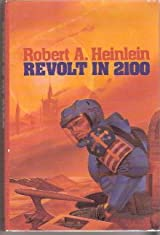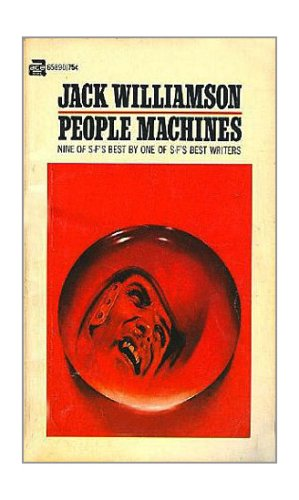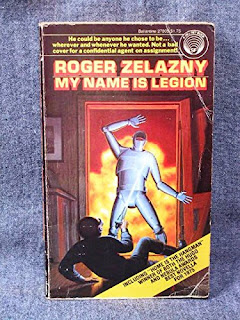PEOPLE MACHINES By Jack Williamson Ace, 1971 After a long time I have across another book worthy of a Bookscan post. "People Machines" is a collection of 9 short stories by Jack Williamson. The stories are very good but better than the stories are author's notes that precede each story. In these notes, Williamson discusses various elements of a story: characters, plot, scene, language, style, etc. In these notes, I found 2 things worthy of extra attention. First is what I consider the best definition of Science Fiction: "Fiction based on the imaginative exploration of scientific possibility." Second is his mention of "stratificational grammar" postulated by Sidney Lamb. This was a new term for me and as I love going on excursions tangentially from a book, I started looking up transitional grammar. And I was disappointed. I was not able to locate a single resource for explaining the concept to a layman or to demonstrate any applicability. For my ...






